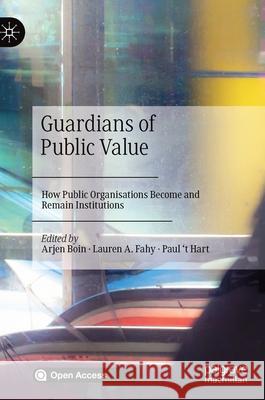Guardians of Public Value: How Public Organisations Become and Remain Institutions » książka
topmenu
Guardians of Public Value: How Public Organisations Become and Remain Institutions
ISBN-13: 9783030517007 / Angielski / Twarda / 2020 / 353 str.
Kategorie BISAC:
Wydawca:
Palgrave MacMillan
Język:
Angielski
ISBN-13:
9783030517007
Rok wydania:
2020
Wydanie:
2021
Ilość stron:
353
Waga:
0.59 kg
Wymiary:
21.01 x 14.81 x 2.06
Oprawa:
Twarda
Wolumenów:
01
Dodatkowe informacje:
Wydanie ilustrowane











